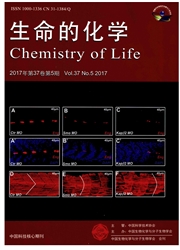

 中文摘要:
中文摘要:
血栓调节蛋白(thrombomodulin,TM)是表达于血管内皮细胞等多种细胞表面的糖蛋白,具有重要的抗炎功能。TM的表达受基因的5’启动子区和3’侧翼序列、核受体以及其他多种因素的调控。TM的抗炎机制主要包括活化C蛋白、抑制高迁移率族蛋白B1、结合脂多糖的Lewis Y抗原、活化凝血酶激活的纤溶抑制物、抗凝血等。目前,TM已成为炎性相关疾病防治中的一个重要的药物设计新靶标,针对TM分子的抗炎措施显现出潜在的应用前景。
 英文摘要:
英文摘要:
Thrombomodulin (TM), a transmembrane glycoprotein, is mainly expressed on the surface of vascular endothelial cells and has important anti-inflammatory effects. The expression of TM is regulated by several factors including the 5' promoter region and 3' flanking region of the gene, nuclear receptors and many other factors. The major anti-inflammatory mechanisms of TM include activation of Protein C, inhibition of high mobility group Box 1 protein, binding of Lewis Y antigen of lipopolysaccharide, activation of thrombinactivated fibrinolysis inhibitor and anticoagulation. Now, TM has become an important novel target for developing therapeutics to inflammatory diseases, and the anti-inflammatory strategies by targeting TM have shown a potential applicable prospect.
 同期刊论文项目
同期刊论文项目
 同项目期刊论文
同项目期刊论文
 Downregulation of Human Farnesoid X Receptor by miR-421 Promotes Proliferation and Migration of Hepa
Downregulation of Human Farnesoid X Receptor by miR-421 Promotes Proliferation and Migration of Hepa 期刊信息
期刊信息
